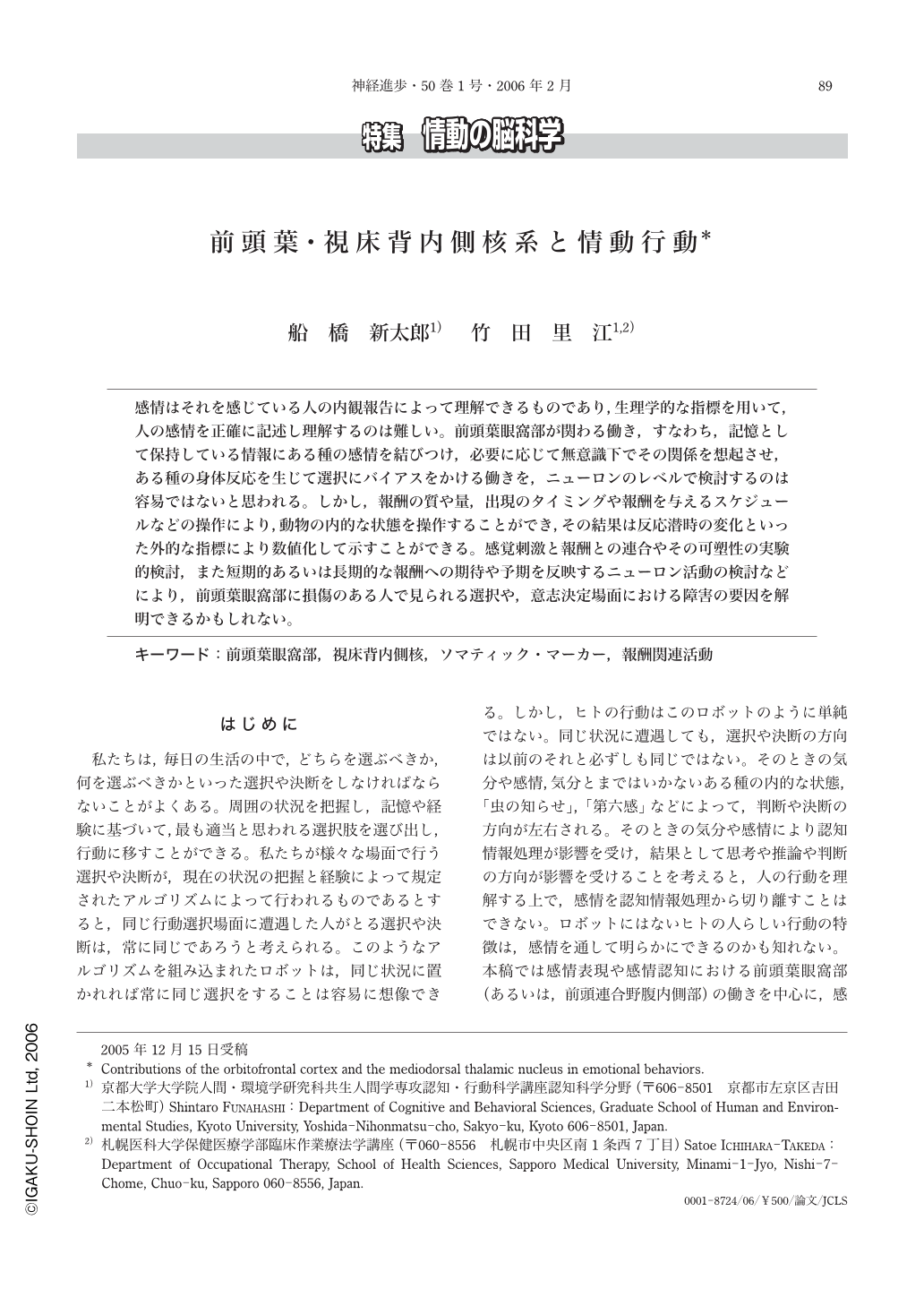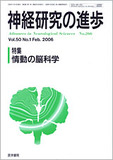Japanese
English
- 有料閲覧
- Abstract 文献概要
- 1ページ目 Look Inside
- 参考文献 Reference
- サイト内被引用 Cited by
感情はそれを感じている人の内観報告によって理解できるものであり,生理学的な指標を用いて,人の感情を正確に記述し理解するのは難しい。前頭葉眼窩部が関わる働き,すなわち,記憶として保持している情報にある種の感情を結びつけ,必要に応じて無意識下でその関係を想起させ,ある種の身体反応を生じて選択にバイアスをかける働きを,ニューロンのレベルで検討するのは容易ではないと思われる。しかし,報酬の質や量,出現のタイミングや報酬を与えるスケジュールなどの操作により,動物の内的な状態を操作することができ,その結果は反応潜時の変化といった外的な指標により数値化して示すことができる。感覚刺激と報酬との連合やその可塑性の実験的検討,また短期的あるいは長期的な報酬への期待や予期を反映するニューロン活動の検討などにより,前頭葉眼窩部に損傷のある人で見られる選択や,意志決定場面における障害の要因を解明できるかもしれない。
The patients who have damages to the orbitofrontal cortex show deficits in the control of emotional expression by themselves as well as the cognition of other's emotional expression. In addition, these patients show personality changes, abnormal social behaviors, and many problems in their social life, especially in decision making and goal-directed behaviors, in spite of no impairments in conventional neuropsychological tests. To understand characteristics of behavioral deficits that the patients with orbitofrontal damages exhibit in their social life and the contribution of emotion in decision making, the gambling task has been used. Studies used the gambling task have revealed that normal subjects show some emotional change(e. g., some bad feeling)when they are going to select a risky card, even though they do not consciously know which card stack includes risky cards. However, the patients with orbitofrontal damages show no emotional change, even though they know they are going to select a risky card. Based on these observations, the orbitofrontal cortex has been considered to play a role to combine particular feeling with particular experience, store this relation as memory, and retrieve this relation unconsciously when we have similar experience. Since the retrieval of this relation would produce similar feeling and some somatic state, this feeling and somatic state strongly bias one's choice or decision and usually direct toward better choice and decision for subjects. This explanation has been used to understand the reason why the patients with orbitofrontal damages make problems in decision making. It is difficult to show how such mechanism is operated in the orbitofrontal cortex. However, neurophysiological studies which manipulate reward itself or reward schedules would reveal how emotion affects choice behavior or decision making and how orbitofrontal neurons participate in these processes.

Copyright © 2006, Igaku-Shoin Ltd. All rights reserved.


